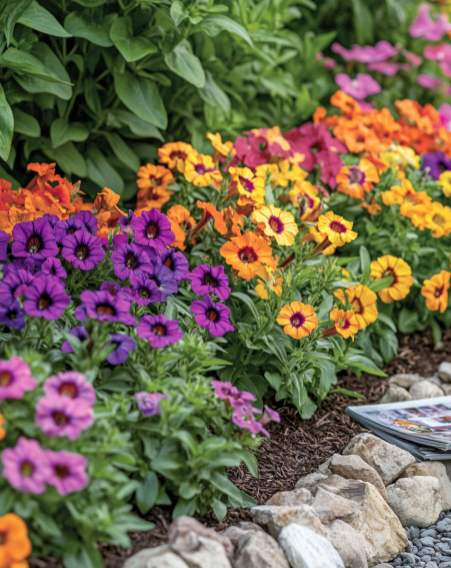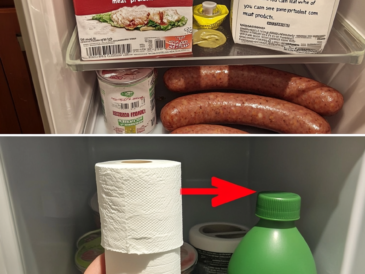Epsom salt, also known by its scientific name, magnesium sulfate, is a naturally occurring mineral compound with a wide range of uses. While it’s celebrated for its benefits in medicine, beauty, and household cleaning, its role in gardening is particularly transformative. Many gardeners, both novice and experienced, consider it a miracle supplement for its powerful effects on plant growth and soil health.
In this article, we’ll explore why Epsom salt is a must-have for any gardener and how its essential components, magnesium and sulfur, play crucial roles in cultivating a thriving, vibrant garden. 🌿
1. Soil Nutrient Enhancement 🌻
Epsom salt acts as a natural soil amendment, delivering essential magnesium and sulfur directly to the soil. These nutrients are critical for soil fertility and plant vigor, ensuring your plants have what they need to thrive.
Why It Matters:
- Magnesium is a core element in the formation of chlorophyll, which plants use to absorb sunlight and convert it into energy through photosynthesis. Without enough magnesium, plants can suffer from chlorosis—yellowing leaves—and diminished growth.
- Sulfur is crucial for protein synthesis and helps plants resist disease, making it an important part of healthy plant development.
2. Seed Germination Improvement 🌱
Sprinkling Epsom salt in your planting beds can significantly boost seed germination. The magnesium content in Epsom salt strengthens the cell walls of seedlings, leading to stronger, healthier plants from the start.
Why It Matters:
- Using Epsom salt when planting seeds enhances the foundation of the plant, promoting robust root systems and better nutrient absorption.
- This early boost in seedling health leads to more vigorous growth as the plant matures.
3. Enhanced Nutrient Uptake 🌾
Magnesium plays a key role in nutrient uptake, helping plants absorb crucial elements like nitrogen, phosphorus, and potassium more efficiently. If your soil is lacking in magnesium, your plants could struggle to access the nutrients they need.
Why It Matters:
- A magnesium deficiency can lead to stunted growth and poor plant health. Epsom salt can remedy this by ensuring that nutrients are absorbed properly, preventing nutrient lockout.
- Regular applications of Epsom salt help to maintain a healthy nutrient balance, resulting in vital, thriving plants.
4. Counteracting Transplant Shock 🌸
Transplanting plants can stress them out, often resulting in what’s known as transplant shock. Epsom salt is an excellent tool to help plants recover faster after being moved to a new location.
Why It Matters:
- After transplanting, apply Epsom salt around the base of the plant to promote new growth. This helps the plant settle into its new environment more easily.
- The magnesium in Epsom salt gives plants the strength they need to bounce back from the stress of relocation.
5. Natural Pest Repellent 🐌
While not a complete solution for pest management, Epsom salt can help deter certain garden pests, such as slugs and snails.
Why It Matters:
- A light sprinkle of Epsom salt around your plants can create a natural barrier without the use of harsh chemicals. It keeps your garden eco-friendly while providing protection.
- This method ensures your plants remain safe from pests without negatively impacting soil health.
6. Boosting Flower and Fruit Production 🌹
If you’re looking to enhance flowering and fruiting in your garden, Epsom salt can be a game-changer. Magnesium is essential in the production of fruiting bodies and larger, more vibrant flowers.
Why It Matters:
- Applying Epsom salt during the flowering phase can lead to bigger blooms and increased fruit production. For rose lovers, this means fuller, more colorful blooms.
- In fruit-bearing plants like tomatoes or peppers, Epsom salt can help yield more robust harvests.
7. Lawn Greening 🌿
Epsom salt isn’t just for garden beds—it can also enhance the green color of your lawn. Magnesium helps grass produce more chlorophyll, making it appear lusher and greener.
Why It Matters:
- A vibrant lawn not only looks beautiful but is also more resistant to weeds and foot traffic. Epsom salt encourages stronger, healthier grass, giving your lawn the resilience it needs to thrive.
- It’s an easy and effective way to maintain a lush lawn without resorting to synthetic fertilizers.
How to Use Epsom Salt in the Garden 🌼
Using Epsom salt effectively is all about timing and moderation. Here are a few methods to incorporate it into your gardening routine:
Continue reading next Page, Just click page “2” below




